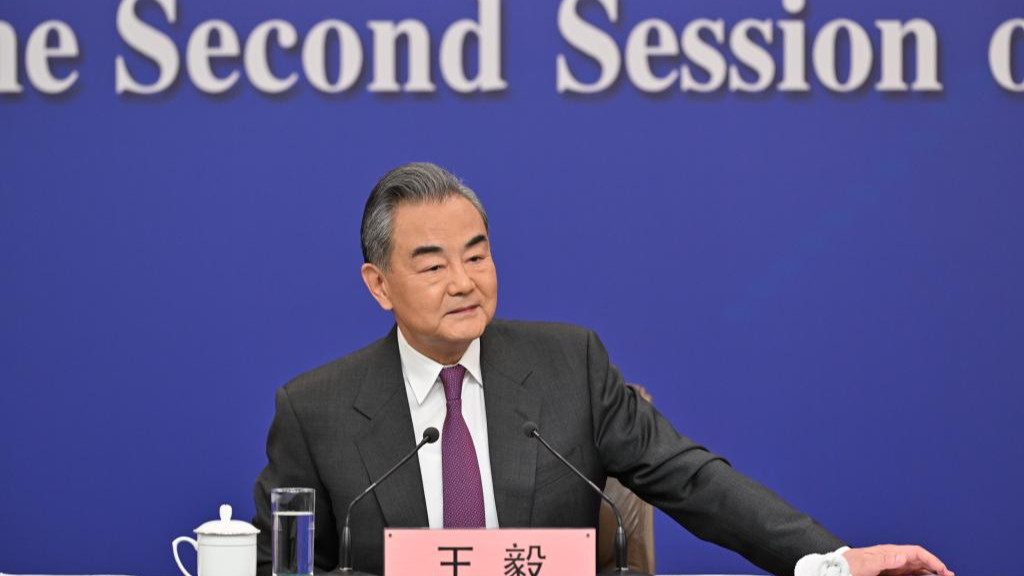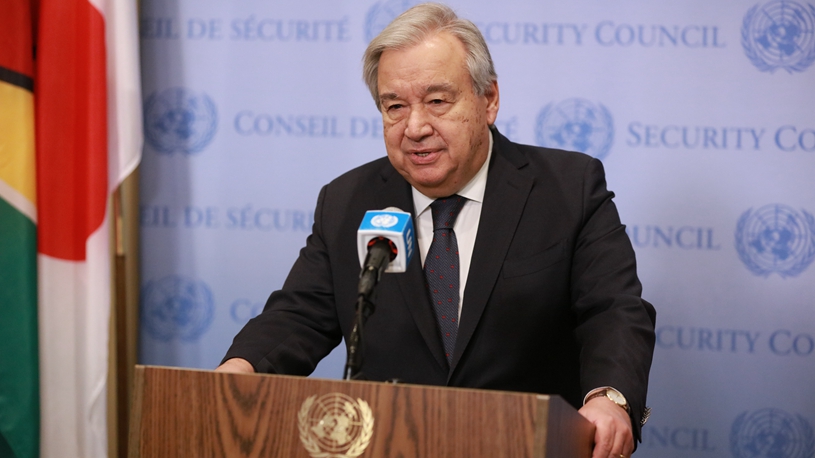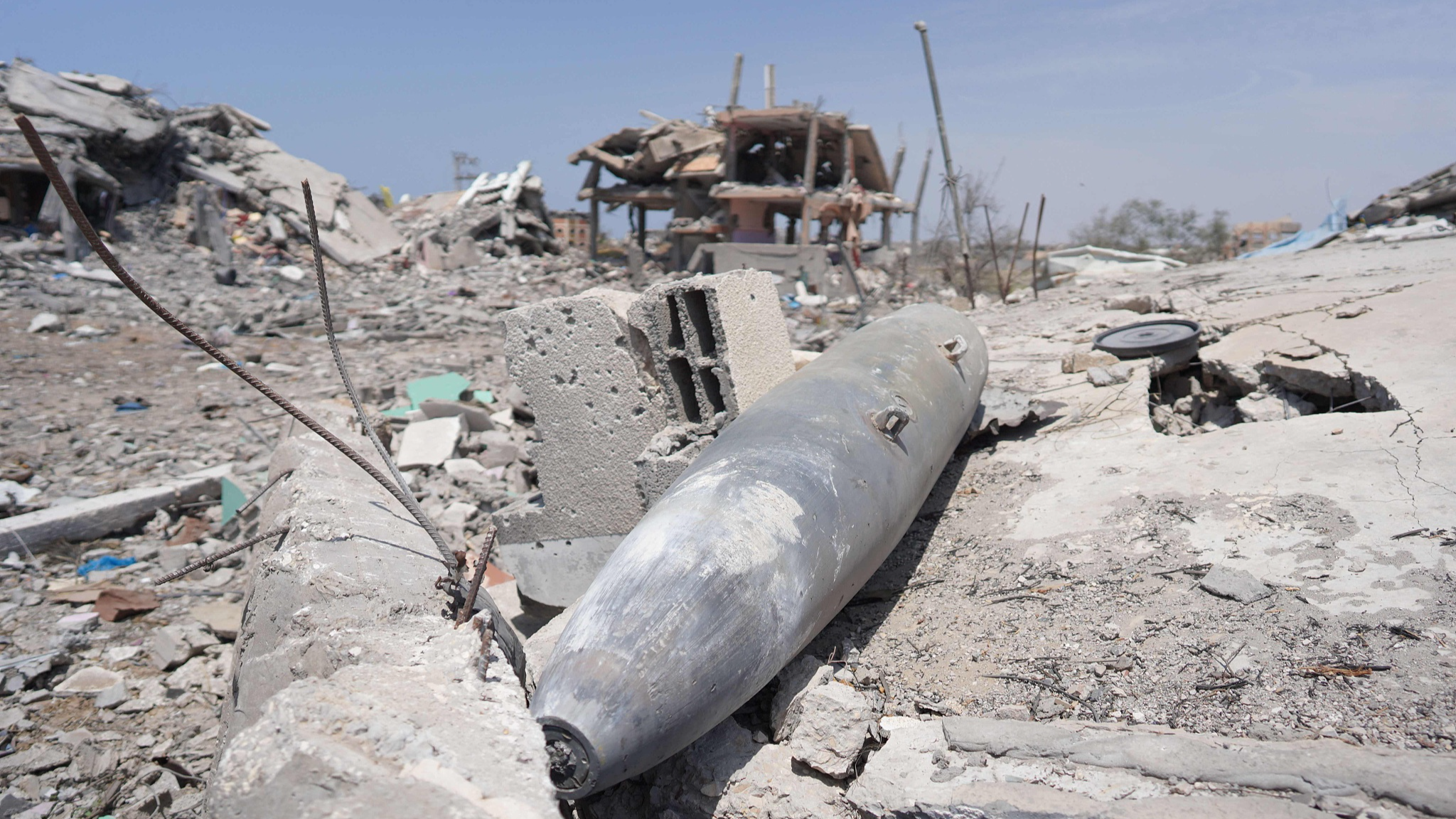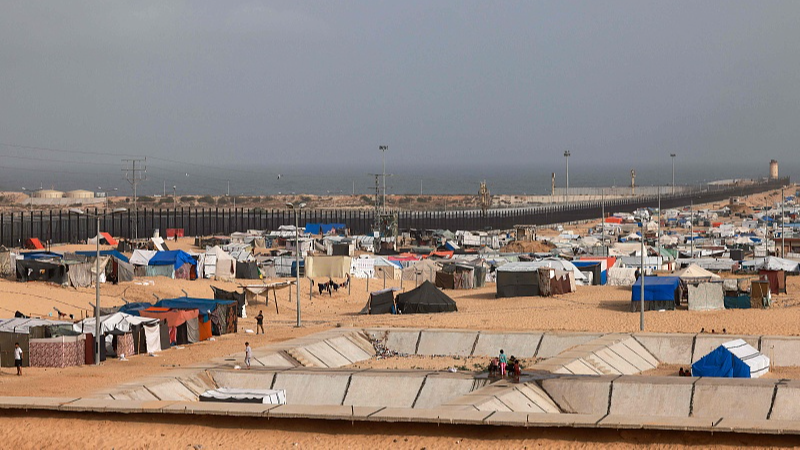Chinese Foreign Minister Wang Yi took questions on issues ranging from relations with the United States and the pursuit of a multipolar world to the conflicts in Gaza and Ukraine on Thursday as he briefed the media on China’s foreign policy goals, approach and achievements.
Wang, also a member of the Political Bureau of the Communist Party of China Central Committee, emphasized China’s commitment to peace and mutual benefit as he spoke at a press conference on the sidelines of the second session of the 14th National People’s Congress in Beijing.
Here are four takeaways from the 90-minute session, which featured 21 questions from Chinese and international reporters.
1. Equal seats at table for multipolar world
Wang Yi voiced China’s commitment to multilateralism and the United Nations (UN) process, calling for an equal playing field for developing countries and promoting the influence of the Global South.
He said China’s solution was to build a community with a shared future for mankind – a concept that has become an international consensus since it was presented a decade ago. He noted that the vision was now included in UN declarations as well as those of the Shanghai Cooperation Organization, BRICS and other international institutions.
Wang stressed the importance China places on pursuing an equal and orderly multipolar world, absent of bloc politics or divisions, featuring equal rights and equal rules. He said those with the “bigger fist” should not have the final say, and that it was “unacceptable that some countries are on the table while others are only on the menu,” an apparent reference to a recent comment by U.S. Secretary of State Antony Blinken.
Assessing the future path of China’s push for global equality, Wang said “the road ahead may be tortuous, but the future is bright.” He said strengthening the role of the UN was vital given the crises and challenges seen in recent years, but reform is needed to increase the representation and say of the developing countries.
The foreign minister also carried China’s approach through to the arena of artificial intelligence (AI), a fast-emerging realm in which he said there should be equal emphasis on development and security, and more should be done to bridge the AI divide.
Wang warned that attempts to create “small yard, high fence” regulations would yield mistakes of “historic consequences,” and that there should be an international governance system under the framework of the UN that all can participate in as equals.
He said China was focusing on three key principles: AI should be a force for good, safety should always be ensured and it should be placed under human control, and fairness should be sought.
He also said China would put forward a draft resolution in the UN on enhancing capacity building in AI among developing countries to bridge the technological divide and allow all countries to benefit from it.
2. China-U.S. ties critical, conflict unimaginable
Wang said there had been improvements in the China-U.S. relationship since the San Francisco meeting between Chinese President Xi Jinping and his U.S. counterpart Joe Biden in November 2023, but warned that U.S. misperceptions towards China continue and Washington’s promises have not been fully fulfilled.
The foreign minister described the relationship as “critical to the well-being of the two peoples and the future humanity of the world,” and said China’s approach to the U.S. was stable and consistent.
He outlined three major principles that China follows in its relations with the U.S.: mutual respect is a precondition, peaceful coexistence is a baseline, as conflict between the countries would have “unimaginable consequences,” and win-win cooperation is the goal.
However, he said the U.S. continued to attempt to limit China, expanding sanctions and other measures to “bewildering levels of unfathomable absurdity.”
He also questioned the confidence of the U.S. and cautioned that the real challenge to the U.S. was itself. “The challenge from the U.S. comes from itself, not China. If it is obsessed with suppressing China, it will only hurt itself.”
Wang concluded that China encouraged proactive cooperation, saw hope in the young generations and the people of the two countries, and hoped to return to the track of stable, sound and sustainable development.
3. The Chinese way on hotspot issues
Wang highlighted China’s successful mediation efforts for achieving a ceasefire in northern Myanmar and the restoration of Saudi Arabia-Iran ties. He said constructive engagement in settling hot spot issues is a responsibility of China as a member of the UN Security Council.
Asked about China’s approach to mediation, he said the country has learned from both international practices and its own wisdom. In this regard, he set out four fundamental principles: non-interference in internal affairs, commitment to political settlement, commitment to impartiality and no double standards, and focus on addressing symptoms and root causes.
The foreign minister emphasized that China believes dialogue is critical to the peaceful resolution of hot spot issues around the world, from the Korean Peninsula to Ukraine.
On Ukraine, he said China has been working to end the conflict and start peace talks. He said China had held an objective position from the start, engaged in leader-to-leader diplomacy, published a position paper, and appointed a special representative, Li Hui, who continues to conduct extensive talks in the region.
He added that the sense of the Chinese delegation at the recent Munich Security Conference was that there was more willingness to explore conditions for a way out, noting that the risks of a lose-lose outcome grow over time and prolonging the conflict could only make things worse.
The earlier the talks start, the sooner can peace arrive and a balanced, sustainable security architecture can be found, he said, adding that China supports an international peace conference in due course supported by both Russia and Ukraine.
Wang also called for the de-escalation of tensions on the Korean Peninsula and resumption of dialogue.
4. Gaza tragedy, UN membership backed
Wang described the situation in Gaza as a human tragedy and civilizational disgrace, adding that nothing justifies the protraction of the conflict and the killing of civilians.
“There is no distinction between noble and humble lives, and life should not be labelled by faith or religion,” he said. “The failure to end this humanitarian disaster today in the 21st century is a tragedy for humanity and a disgrace for civilization.”
The death toll in Gaza has surpassed 30,000 since October 7, 2023, according to the Hamas-ruled territory’s health ministry.
Wang called on the international community to promote an immediate ceasefire and the distribution of humanitarian assistance, and said all detainees should be released and all actions that harm civilians should be stopped.
The foreign minister also said that China supports Palestine’s full membership in the UN and urged a “certain Security Council member” not to obstruct it from attaining it.
He added that historical injustices to Palestinians must not continue and that a two-state solution was the only way to enduring peace.
China supports the rapid resumption of peace talks between Palestine and Israel and will insist on a two-state solution that guarantees the peaceful coexistence of both countries, he said.
Wang also reiterated China’s support for an authoritative international peace conference to come up with a road map for a solution to the crisis.
Source(s): CGTN

 News6 days ago
News6 days ago
 News7 days ago
News7 days ago
 News7 days ago
News7 days ago
 Sports5 days ago
Sports5 days ago
 News7 days ago
News7 days ago
 World5 days ago
World5 days ago
 News3 days ago
News3 days ago
 World6 days ago
World6 days ago


















